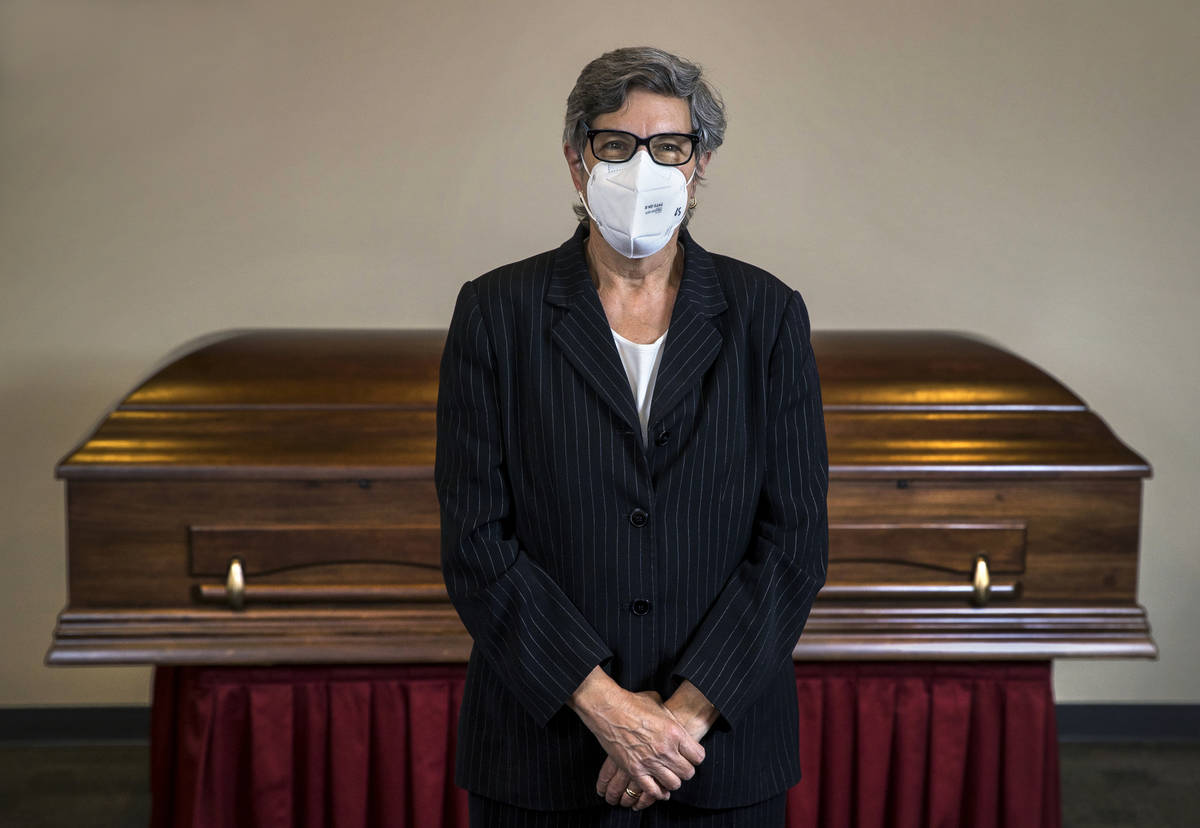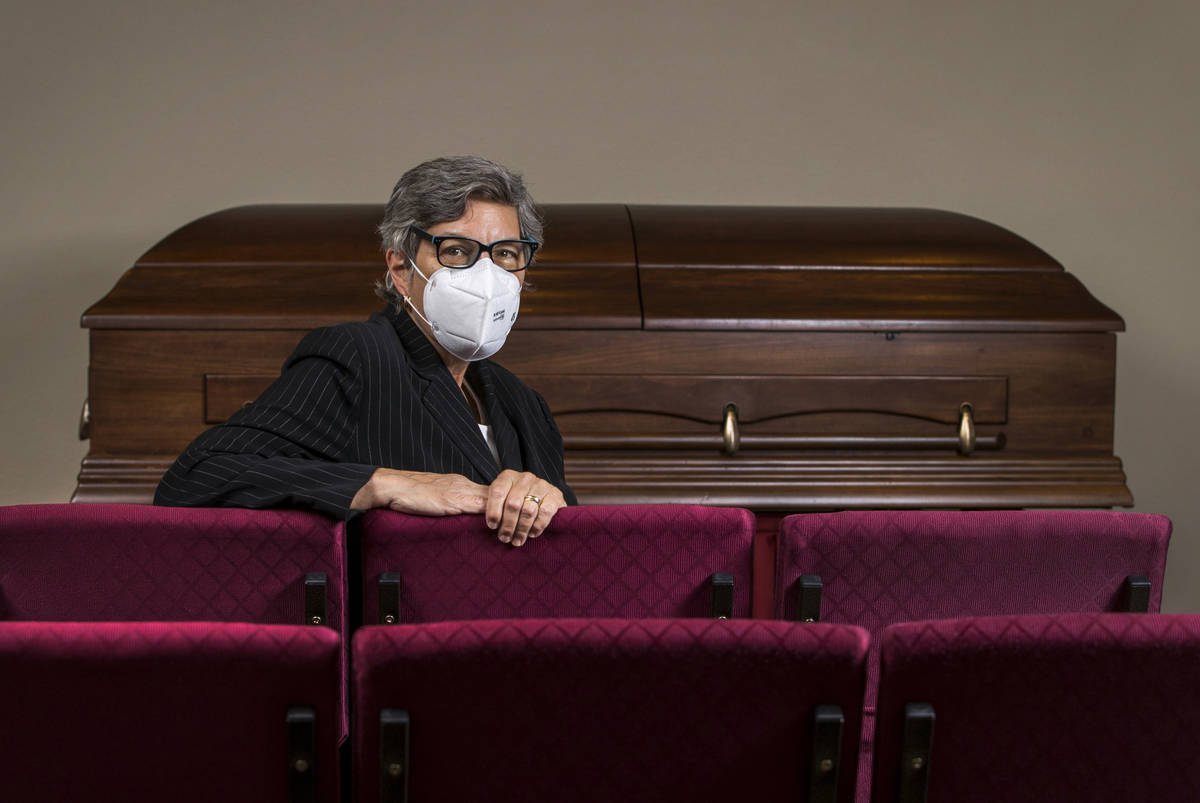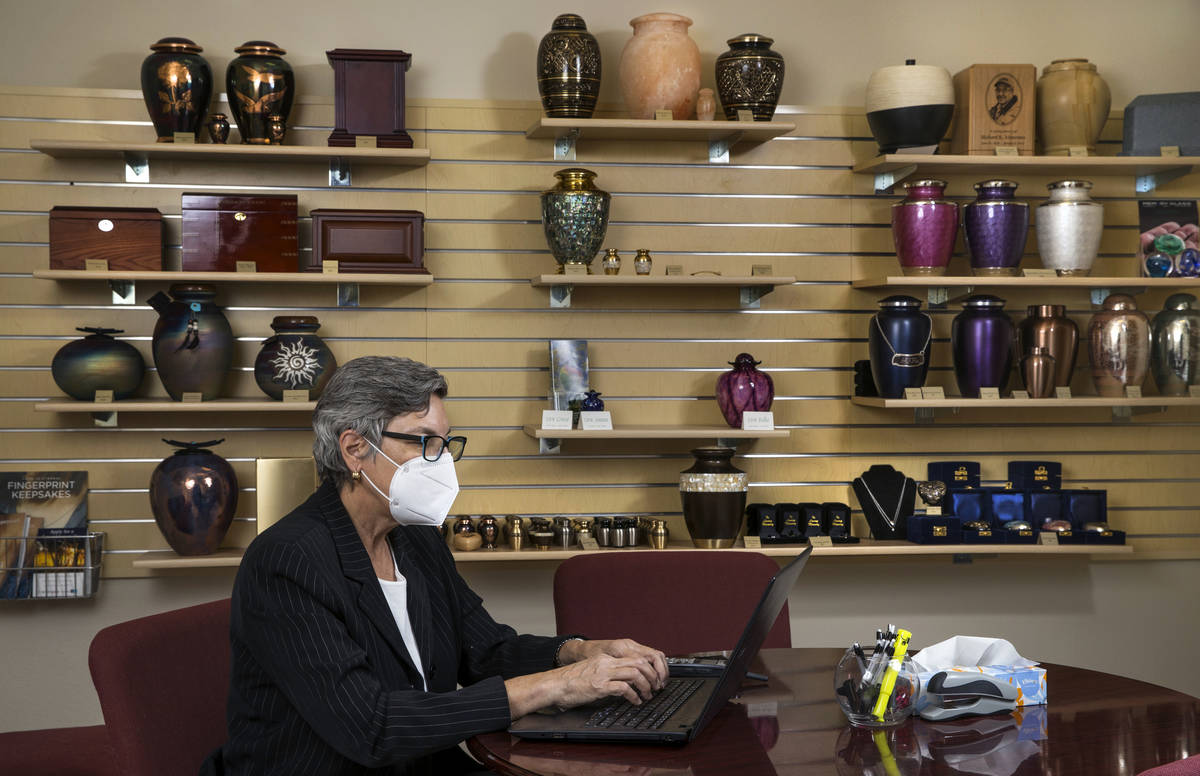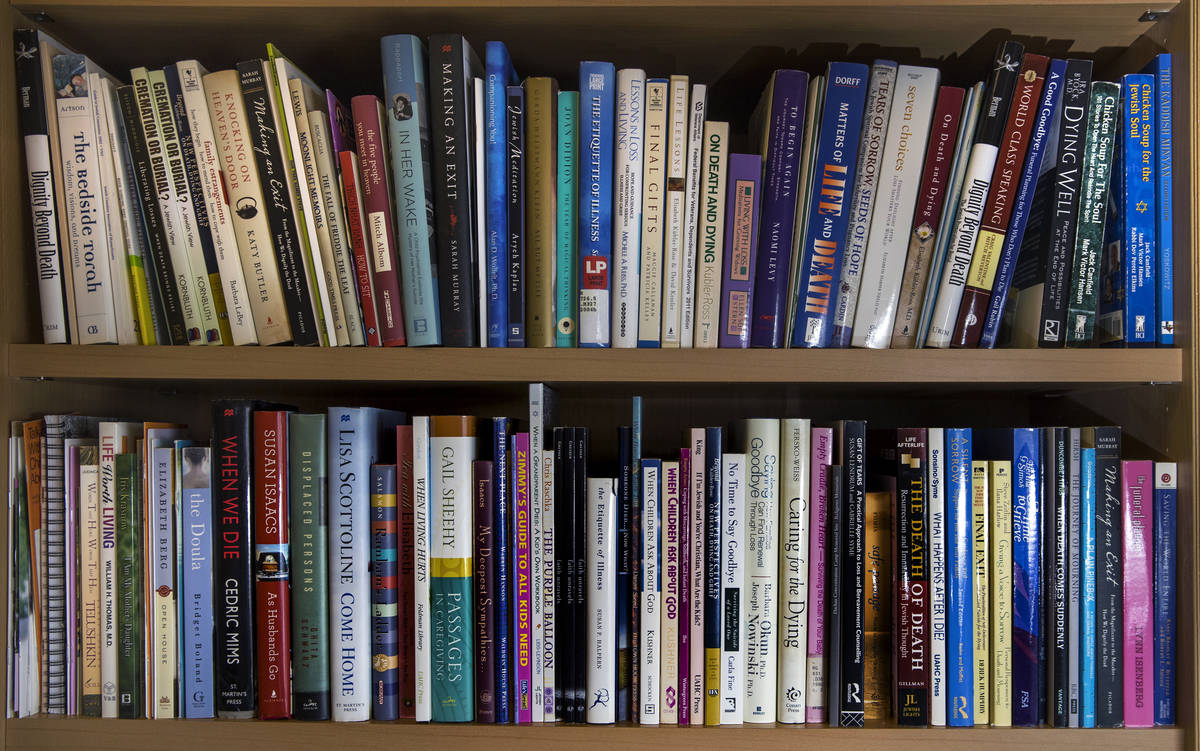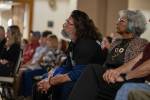Las Vegas funeral directors are on front lines of pandemic, too
For Philip Smith, the new normal was signaled by the disappearance of familiar furniture.
“When it first hit me that things had changed was the day we moved all of our chairs out of the chapel and we had only 10 left,” says Smith, general manager of Davis Funeral Homes and Memorial Parks. “I thought, ‘Well, this will be an interesting time for the immediate future.’ ”
Other changes would follow. Families postponing loved ones’ services. Amping up already rigorous employee health and safety protocols. Even eliminating such time-honored practices as handshakes and face-to-face meetings with family members.
The coronavirus pandemic has changed everything over the past several weeks, including the environment in which funeral directors work.
“We’re all just trying to understand how to deal with it,” said Ryan Bowen, co-owner and general manager of La Paloma Funeral Services. “As service providers (to) families, we’ve had to make so many modifications, whether it relates to picking up (people) … caring for remains or dealing with family members.”
And, like first responders and front-line workers in hospitals and health care settings, they’re doing it against the frightening backdrop of a pandemic.
‘Last responders’
Larry Davis, managing partner of Bunkers Mortuary, has heard funeral workers referred to as “the last responders,” and Laura Sussman, owner of Kraft-Sussman Funeral & Cremation Services, notes that they, too, face risks from the coronavirus simply by doing their jobs.
“It’s interesting because very few people recognize it,” Sussman said. “But my staff is potentially exposing themselves and have to be careful.”
Smith said his employees have seen at least 56 positive coronavirus cases, while Bowen estimates that his have seen 20 to 25 confirmed cases. Sussman said her staff has worked with at least 15 people who died from the virus.
Fortunately, all say that the caseloads they’ve reached so far haven’t exceeded their ability to handle them.
New strategies
However, the pandemic has forced changes in some long-standing funeral industry practices.
Most arrangements are being made virtually, and both employees and family members are asked to wear masks for the rare face-to-face meetings. “Now that I’ve been wearing a mask for weeks, that’s practically part of my uniform now,” Sussman said.
Celena DiLullo, president of Palm Mortuaries, said guidance from the U.S. Centers for Disease Control and Prevention “really helped us prepare” for potential changes in more technical aspects of the business. So did learning about issues that arose on the East Coast and in other coronavirus hot spots.
“I knew what was going to be coming just watching the news and seeing what was going on in other parts of the world,” Davis said. For example, “I thought we were going to have some sort of quarantine,” although “I don’t think I knew the extent that it was going to be or how fast it would happen.”
Staying safe
The virus makes adhering to the industry’s already strict protocols vital. Smith said merely transporting COVID-19 patients requires being “fully gowned, with N95 masks,” and similar protective gear is worn in cases in which the deceased’s COVID-19 status is unclear.
“We have to treat everyone with universal precautions because we don’t know what the person had,” Davis said. “The only new level of this with COVID-19 is that we have the next level, which is (like) someone who had tuberculosis, and here’s what you need to do.”
That “wasn’t a big change for us,” Davis added. “The challenge was personal protective equipment. We have the same problem as heath care providers do because we use the same suppliers.”
None of the funeral directors report having an employee who has gotten the virus.
Stress, exhaustion, anxiety
Like others who work with COVID-19 victims, employee stress and exhaustion are common among funeral employees.
“I’ve been letting staff stay home with their families when we don’t need them in the office,” Sussman said. “It has helped. They have a little more flexibility knowing when they come in it won’t necessarily be for an extended period of time.
“But it’s stressful. I never wondered before, is this job going to put me in the hospital? My kids — my daughter graduated with a master’s in public heath — she calls or texts me every day. She’s like, ‘You need to stay home and be careful.’ ”
“I am very cautious about wanting not only to keep families safe but also the employees,” Davis said. “So we have a staggered schedule and we’re working from home a lot more.
“I think the first week we were all, ‘OK, what does this mean?’ But I think we’ve moved in a good place … I think (employees) realize this is part of life and we’re here taking care of families. I try to show them as often as I can how they’re all appreciated.”
Silent heroes
“Everybody seems pretty strong, and they’re in it for the right reason,” Sussman said. “They want to provide care for families. That’s what keeps everyone going. We think, ‘If we weren’t here to do it, who would?’ ”
DiLullo calls her staff “silent heroes” and says they’re OK if people may not recognize them for the job they do.
“We know our job is to take care of families,” DiLullo said. “It’s a very unique profession and what we do is important. That’s why we show up every day.”
Contact John Przybys at jprzybys@reviewjournal.com. Follow @JJPrzybys on Twitter.



